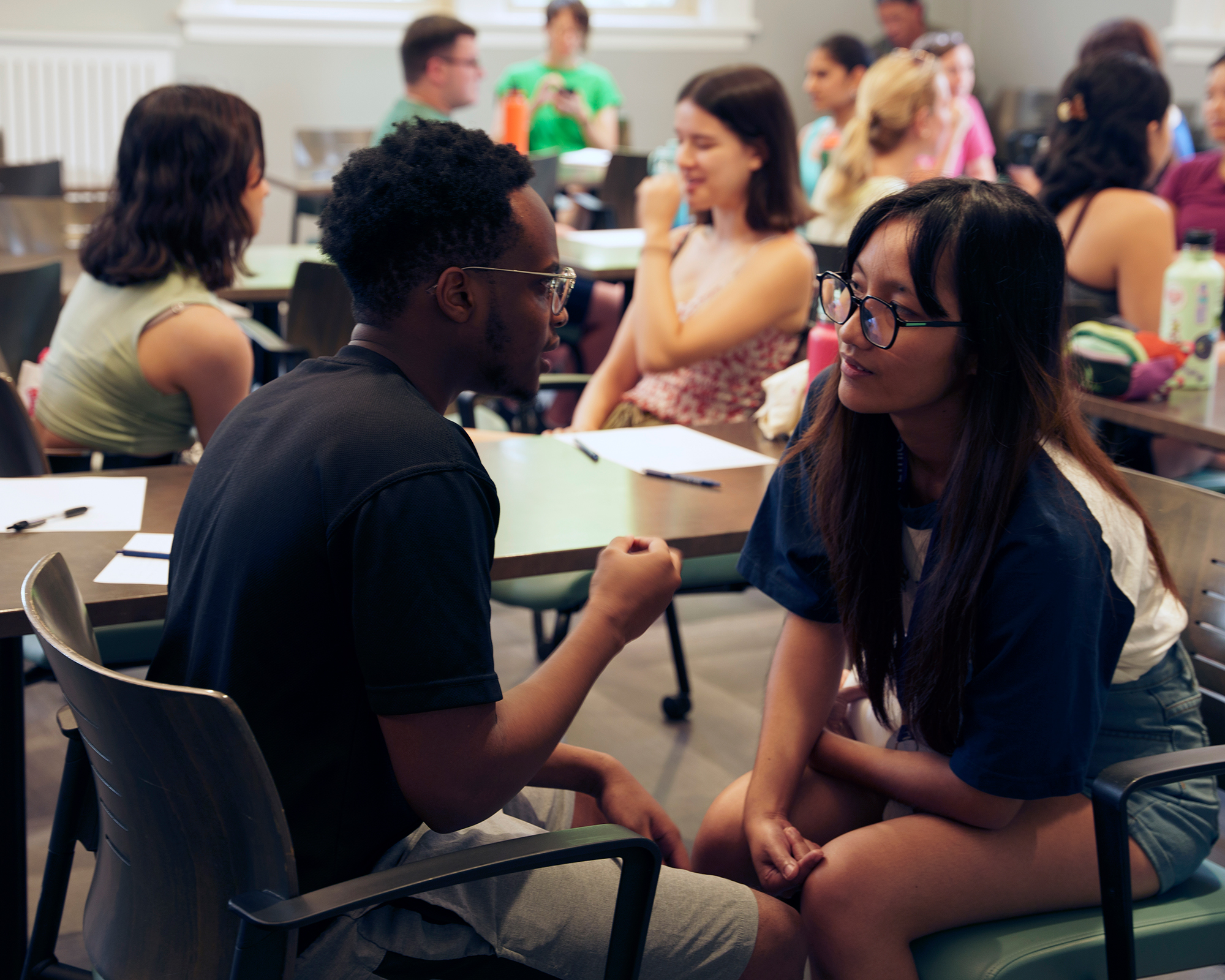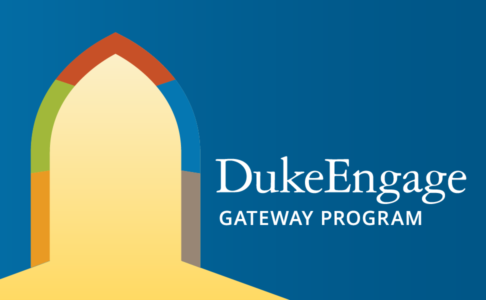DukeEngage Gateway Program Preps Incoming First-Years to Better Serve Home Communities
This article by Duke student Ahilan Eraniyan (T’27) was originally published in The Chronicle, a student-run news organization.

In 2021, DukeEngage launched a Gateway program to encourage incoming first-year students to engage with their local communities through civic and community service.
Gateway students partner with an organization in their hometown for a summer-long project, working for a minimum of 100 hours over at least five weeks while routinely meeting virtually with peers and faculty to reflect on their involvement. Projects led by this year’s participants ranged from pediatric medical research to financial literacy initiatives and advocacy work around homelessness and food insecurity.
“Gateway … launches the Duke journey through the lens of community engagement, allowing incoming students to build meaningful connections before they even set foot on campus,” Associate Director of DukeEngage Inga Peterson wrote in an email to The Chronicle. “The experience not only honors their origins but also equips them to infuse a spirit of service and engagement into their future at Duke and beyond.”
Now in its fourth iteration, the program piloted an optional, in-person “Summer School” conference this year for participants to unite on campus.
The new Summer School offering — led by staff from DukeEngage and the Kenan Institute for Ethics — provided a three-day experience for students to travel to campus in June and learn about Durham-specific opportunities.
Students who attended the Summer School session were able to reflect on their summer projects while connecting with their peers and upperclassmen who participated in the Gateway program in previous years. According to Dagny Edison, Trinity ‘24 and program coordinator for the Kenan Institute, students also heard from Duke faculty and Durham community members in discussions concerning “the ethics of service” and “a unique model for community-based work.”
“By bringing participants together at the beginning of their summer experience, they were given the opportunity to connect with each other, Duke and Durham ahead of their arrival on campus in the fall,” Peterson wrote.
“Doing DukeEngage [Gateway] in the summer really showed me the kind of people that I would be meeting and just how cool, passionate, involved and great a lot of the people at Duke were.”
– Colin Belton T’26
Since the Gateway program began in 2021, 76 students have worked worldwide to “consider the responsibilities of citizenship, best practices in community-based collaboration and their own sense of purpose in the world.” Upon completion of the program, a quarter of students go on to pursue further involvement in DukeEngage programs during their time at Duke.
Senior Coral Lin worked on a Zoning Redesign project for the City of Newton, Massachusetts’ Planning Department in the Gateway program’s inaugural year.
“The Gateway program’s training and mentorship opportunities will not only help my work this summer but also help me develop effective strategies for advocating for social justice,” she said while participating in the program as an incoming freshman.
“I think [the Gateway program] inspired me to keep going down this path of being really interested in civic engagement,” Lin told The Chronicle in a recent interview. “[It] helped show this idea that what we should really be is in partnership and being the voices of the community rather than looking at this top-down philanthropic approach.”
Eric Mlyn, distinguished faculty fellow at the Kenan Institute for Ethics and founding executive director of DukeEngage until 2019, praised the Gateway program for introducing students to civic work at Duke.
“These students come in here knowing how they can get engaged at Duke University [and] in the Durham community,” Mlyn said. “That just gives them a little bit of an advance in that kind of engagement.”
Peterson said the program was inspired by Harvard University’s SPARK program, a similar public service initiative for incoming first-years at Harvard. Mlyn served on the SPARK program’s board and decided to introduce the concept to the DukeEngage team after “recogniz[ing] the profound impact such an initiative could have at Duke.”
“Given Duke’s longstanding commitment to the global public good and the existing infrastructure of DukeEngage, the choice to create a similar program seemed obvious,” Peterson wrote.
The program launched amid the COVID-19 pandemic and the Black Lives Matter movement, both of which “heightened questions of community, responsibility and citizenship and created a desire to work for good” among incoming students.
Sophomore Colin Belton, who worked with Patriot K9s of Wisconsin to train service dogs and educate the community about post-traumatic stress injury and other issues facing veterans, said his experience in the Gateway program helped ease his transition to college.
“Doing DukeEngage [Gateway] in the summer really showed me the kind of people that I would be meeting and just how cool, passionate, involved and great a lot of the people at Duke were,” Belton said.
He added that the guest speaker events, which focused on community engagement and altruism, were a highlight of the program.
Edison noted that students responded positively to the new Summer School offering, with some sharing in a feedback survey that they were excited to apply what they learned from the conference to their work with their local organizations.
In future years, both Peterson and Edison shared that the Gateway program plans to expand the Summer School experience and ensure that all students can participate in the conference. Around two-thirds of this year’s cohort was able to attend the event, with students traveling to Durham from their home states and countries.
Additionally, program staff aim to increase Gateway alumni involvement with DukeEngage and the Kenan Institute past the summer experience through field trips around Durham and other community engagement opportunities.

